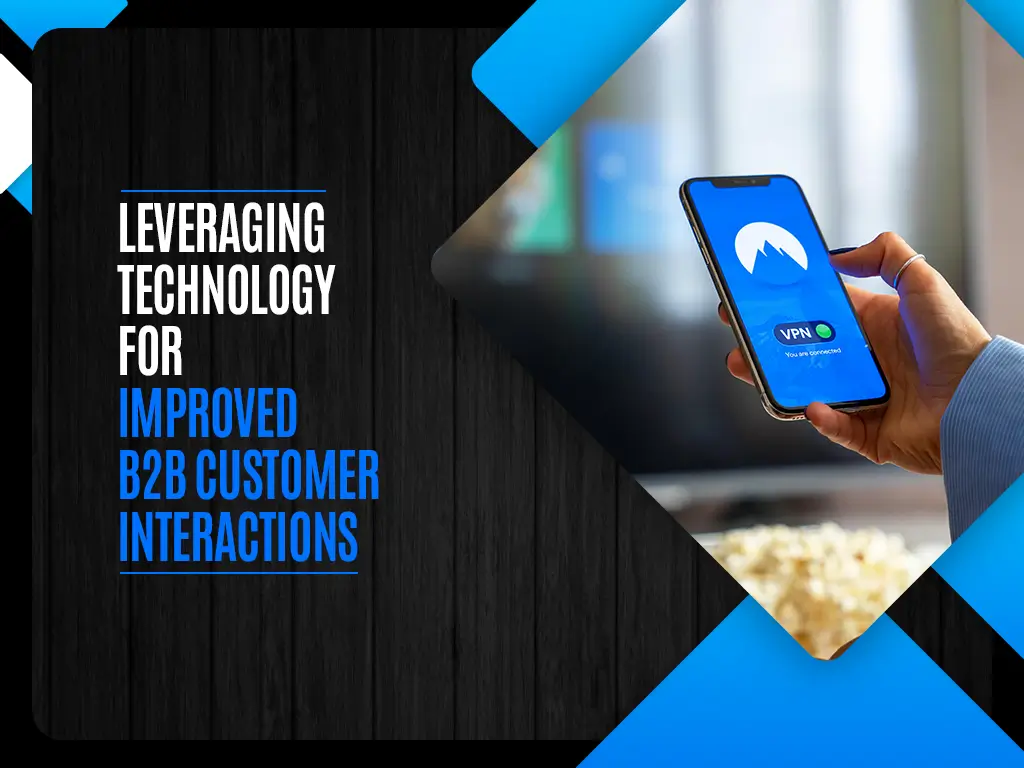Leveraging Technology for Improved B2B Customer Interactions

In the modern business landscape, where competition is fierce, and customer expectations are higher than ever, businesses are increasingly turning to technology to enhance their customer interactions. This shift is especially pronounced in the B2B sector, where the complexity and longevity of relationships can benefit significantly from advanced technological interventions. A prime example of this technological adoption is Microsoft D365, a comprehensive suite of enterprise applications designed to streamline business processes and improve customer engagement.
The Role of CRM Equipment in Upgrading User Actions
The greatest innovation, for example, is the introduction of CRM systems, which enable a close relationship between customers and companies. CRM platforms are central in reporting, collecting data, and interacting with customers at all stages of their relationship with the company. Therefore, their mission is to enhance business engagement with clients, establish brand loyalty, and facilitate the expansion of the sales team.
CRM tools, including Microsoft D365, are of quite a high standard, and it is understandable why B2B businesses prefer them more. Companies can now effectively handle customer communication and analyze client data while carrying out the customer journey, as these systems make it possible. CRM systems can freely be used to accomplish sales management, marketing automation, and customer service tasks that will help firms smooth operations, expand customer satisfaction, and guarantee profitability.
Bringing AI and Machine Learning together enables Predictive Analytics.
AI and ML are now shaking the B2B marketers’ role from the inside -out. By integrating into the CRM systems (Customer Relations Management), which already brings significant benefits to a business, predictive analytics could provide salespersons with detailed information on the behavior of the customers, needs, and preferences, significantly increasing the possibilities of being on time and meet up customers’ expectations.
These technologies are widely employed to process an enormous amount of data cherished to extract only those valuable patterns and examine consumers’ behavior. For this same reason, AI is very good at spotting possible threats and failures and pointing out potential avenues to leverage for the benefit of customers. This allows the businesses to address them proactively so they will market better over the long term.
The fierce impact is seen in chatbots and virtual assistants, which are AI-enabled and provide immediate solutions to customer queries that help to attain highly effective real-time customer service. AI’s most important capability is acting much more quickly, which boils down to a superior customer experience and gives human agents more time to focus on the more complex issues where adding a human touch is more impactful.
Besides, machine learning algorithms are improving marketing methods and making targeting and personalizing the customer’s engagement easy. This ability allows marketers to create more relevant and practical messages, thus creating higher chances of engaging consumers and retaining them long-term.
Not only reactionary client service but also AI and ML lead to active customer management. With these technologies creating possibilities such as forecasting the future customer’s conduct and desires, businesses can design unique strategies to meet each customer’s specific needs. For example, based on predictive analytics, these assumptions can be collated under a preferred service upgrade. It tends to have a higher conversion rate, eventually translating into a satisfying upsell.
Moreover, these technologies narrow down and elaborate consumer segments to an extent. Machine learning algorithms probe the customer’s data in different ways to identify, employing several factors and actions, the possibly most precise segments of customers. This segmentation, in turn, lets you design targeted marketing strategies that are definitely relevant to the wishes and demands of the different groups. So, you can ensure that the campaigns play the role and capture the attention you need as they are designed in compliance with the needs of the consumers.
Improving Customer Experience via a Marriage of Mobile and Cloud Technologies
Mobile and cloud technologies have an impact not only on B2B relationships but also on how they interact. Sales and service teams can access customer information from their mobile devices. They can execute functions efficiently, which has the effect of addressing customers and issues effectively on time. Cloud CRM solutions, like MS D365, enable it by constantly providing data and applications from any device that can be accessed anywhere, anytime; hence, salespeople and some management folks in operation can get client data from the comfort of their locations.
Later, the cloud technologies also share the scalability ability needed to grow with the business. The scaling capabilities of CRM systems for B2B companies grow concurrently with business expansion. Such scaling cannot be achieved by investing in physical infrastructure, all while bearing the opportunity to employ additional CRM functionalities with no significant up-front investment.
Besides the comfort gained from mobility and flexibility, cloud options allow for security elements that are important in maintaining the credibility of customer data—an issue of paramount concern in B2B interactions, where contracts and business dealings are involved, and sensitive information is shared.
Conclusion
Distinctive automation of customer relationship management systems, artificial intelligence, machine learning, and mobile and cloud solutions have, beyond reproach, caused astonishing changes in the CRM functions of B2B organizations. These technologies make interactions between merchants and clients faster and more accurate and improve the customers’ entire experience, thereby leading to more substantial business confidence and committed customers.
On the horizon, B2B customer relations will continue to evolve with tech involvement. Hence, businesses should think ahead and keep pace with technology use to stay ahead of competitors. The integration and utilization of these technological instruments will be central to ensuring competitiveness and establishing this sort of meaningful bond in this intricate B2B arena.

